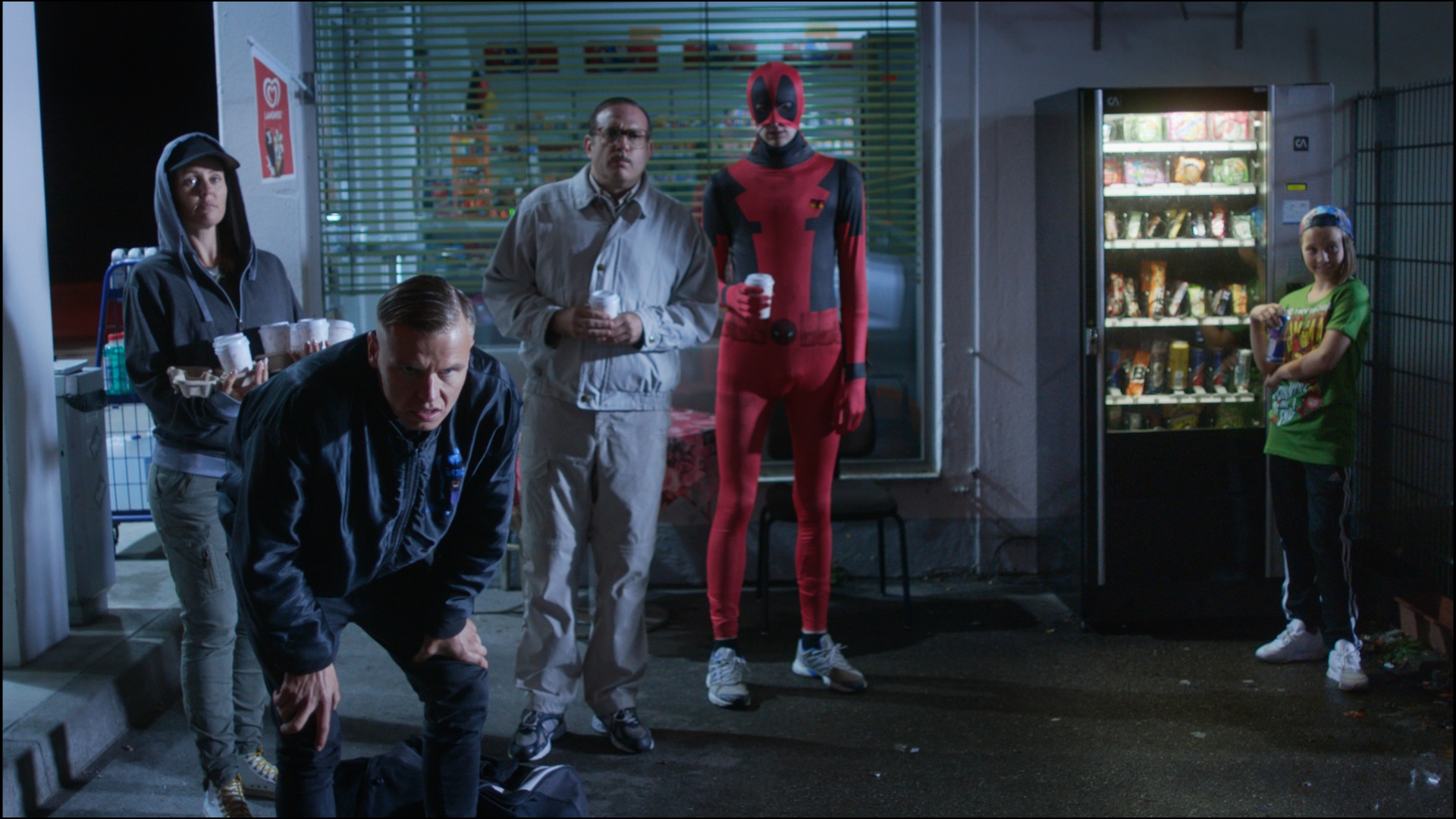
The series which had 2021 its world premiere on die Seriale became nominated for many awards and won the Awards Best Supporting Actor (Luis Lüps, left in the foreground) und Best Production Design.
The interview is made with Wouter Wirth und Moritz Adlon the directors and writers of the series, who study movies and feature films at the HFF Munich since 2014.
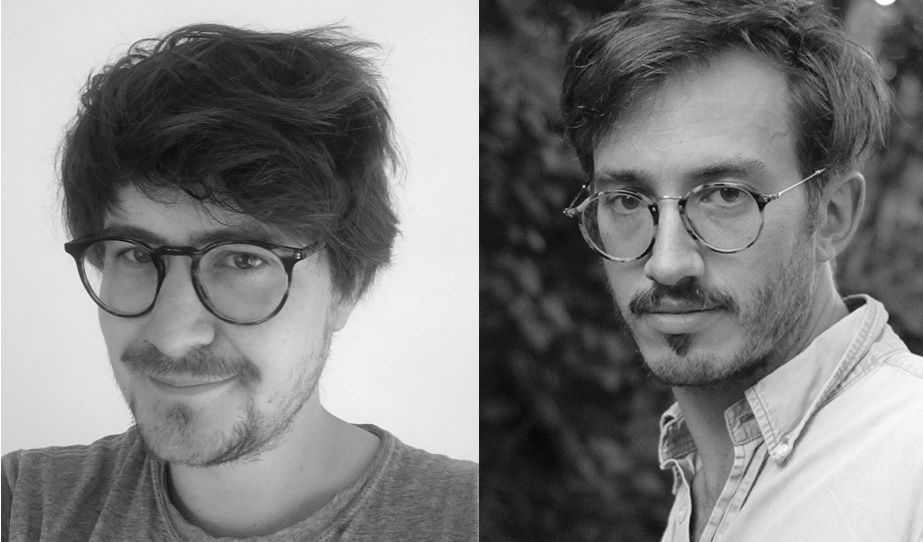
Moritz Adlon and Wouter Wirth © Irina Adlon, Romina Wirth
die Seriale: Congratulations on the awards Best Supporting Actor and Best Production Design at the Seriale 2021! What does Miliz mean and how did the idea for the series arise?
Wouter Wirth: MILIZ! is another word for vigilante, but it is more expressive and international understandable too. It is also often used for paramilitary organizations.
Moritz Adlon: In the beginning, it was a joke by Wouter and myself many years ago, when the AfD and Pegida in Germany got strong. We both study film direction at the HFF in Munich and we thought, we would like to do an anti-advertising for the AfD.
Wouter Wirth: With an ironic refraction or with an ironic exaggeration, so that you promote that, but so exaggerated, that it means the opposite. And therefore, comes the idea, that we have a right political main character that we follow. From that come the playful elements, which are kind of comic-like. But that the whole thing is emotional journey with the right main character in the end, was all added later. Originally it should become an anti-advertising.
die Seriale: What target group is the series for?
Moritz Adlon: We said, it is fun for the whole family. But it turns out, that it is maybe not for the whole family. I think, it is a little bit difficult to say, because theoretically it is a topic for teenager, but in fact I think it does not work really well for teenager, so maybe it is more for our generation.
Wouter Wirth: It is for people, who were raised in the pop cultural age, who can read the signs. That are people in our age and younger.
Moritz Adlon: And at the same time you can notice, that MILIZ! is such a wild bunch of flowers, that in the end there is something for everyone, but not everyone understands MILIZ completely, what is an interesting effect. But my mother for example sees MILIZ different than my girlfriend.
Wouter Wirth: The question is always a little bit difficult. We were faced with this question very often, because we wanted to work with partners for which this is a very important question and for ourselves as filmmakers it is not really important, because we make a series, which has a position and deals with a certain topic and tells in a certain way that we like to see in the media sector more often. But it is not addressed to 16-21 years old people, but at people who have fun to watch such stories, which have at a serious topic at the same time.
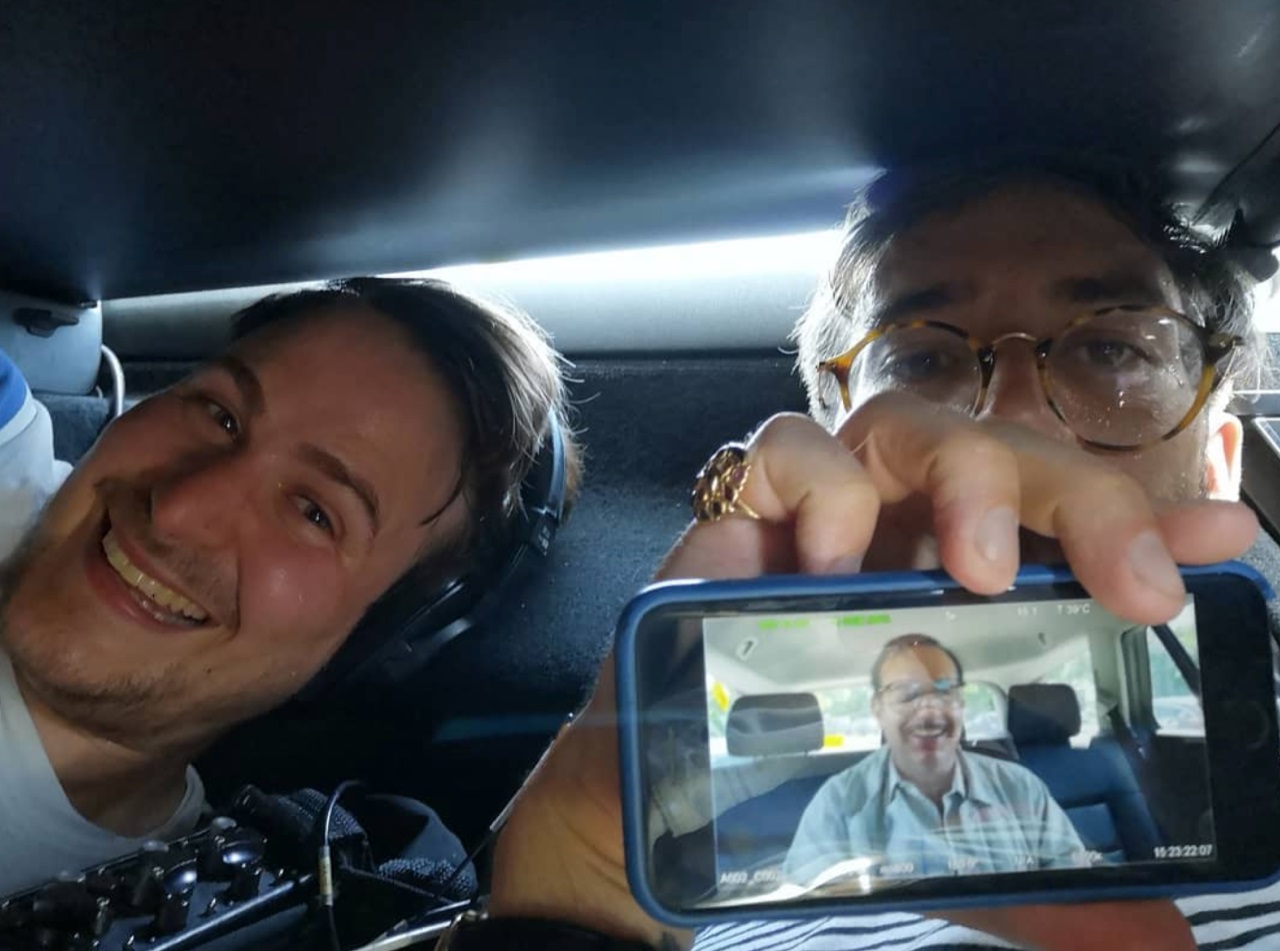
Moritz Adlon and Wouter Wirth shooting MILIZ © Wouter Wirth
die Seriale: What was the motivation to shoot that series and to pay attention to this specific topic?
Wouter Wirth: We have shot the series at a time, when there was a huge public discourse about this topic. And the cinematic presentation of this discourse was in particular in documentaries and movies which only address people who think that it is an important topic from the start. And because of that we wanted to make a comedy and tell the story from the perspective of a right wing main character whom we send on a journey to be purified in the end. And that was the motivation: we do a topic which is really important and we want to tell it in a way that makes it accessible for the general public, without losing this attitude.
Moritz Adlon: And at the time, in 2014⁄2015 it really fit the spirit of the time, from these times are the pictures in the intro with the protesters. The time has caught up with us and now it fits again. It is a really strange effect.
die Seriale: The character constellation is very special and varied. Especially the main characters are possible identification figures and we think they are likeable, but we dislike their opinions. What was the idea behind it?
Wouter Wirth: From our perspective, there is only one main character and that is Helmut and he comes out of that time, when it was clear that the main part of the AfD voters were frustrated men at the age of 50-65 or something, they are frustrated because of the development of their political lifes. A man in the midlife crisis and a white old man. That is the type of man, who we talk about. And the other figures are are placed around Helmut. Especially Tina and Elvis, whom we put as angel and devil on his shoulders. You can see that in particular in the scene on the bridge, where he has to decide: Do I want to be a Nazi or not? And there are always these two forces, which drain from the right and from the left and force him to make decisions. Because, and that is a special quality: We have a main character, who is really passive. During the whole movie he is not able to make a decision on his own, but he always has these two forces he is reliant on, because he is very easy to manipulate, because he is in a crisis.
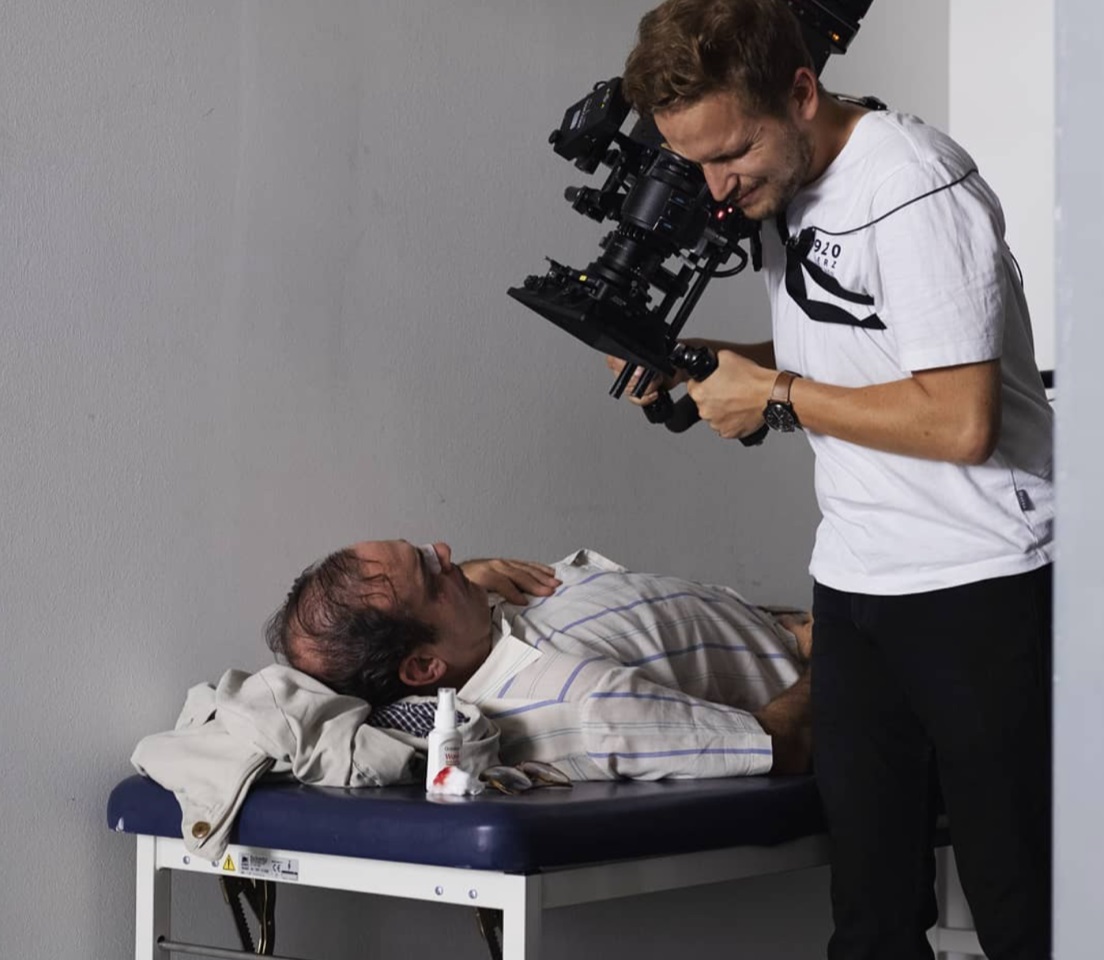
Thomas Spitschka filming main cast Miguel Abrantes Ostrowski © Wouter Wirth
die Seriale: What do you think are the reasons, that Helmut decides to start a miliz?
Wouter Wirth: I think that is divided into two. What we tell is, that we have a type of human, who is in a personal crisis. The fact, that his wife kicks him out, stands for it. In a deep layer, he has a crisis as a man, because he lives in a world in which he is pushed from the throne, he is not the king of society anymore and these double humiliation, which he cannot handle, he carries over to the political crisis.
Moritz Adlon: Yes, and directly on the foreign, on the refugees who come. They are guilty as intruders.
Wouter Wirth: And that is obviously caused by the media images. In this case Facebook. That are people who very often hang out in right filter bubbles. Especially on Facebook, you can see that very clearly and we know that these contents are a mixture of fake news and headlines which are shared without checking. In the first episode he has been overtaken by pictures which he does not classify or is not able to classify and because he is at such a vulnerable point in his life, he is very susceptible to it.
Moritz Adlon: This Facebook feed is interesting, because it is very extreme und very obtrusive and you ask yourself: Okay, that is just satire somehow. It is not a satire though, but we look through right patriotic Facebook groups, for example „vernetztes Vaterland“ and there are shared such posts. Well, that are no screenshots, they are rather recreated by ourselves, but such is the inflection and there is nearly no exaggeration, which is really mad.
die Seriale: In the beginning, there is a scene where Helmut finds an article on Facebook which is about the topic, that in the meantime German pupils are the minority at German schools. Do you think that the media have influenced the emergence of xenophobia and accordingly have a responsibility?
Moritz Adlon: What is striking is, that the shared contents in the filter bubbles are usually no serious media and no serious sources. They are very often just produced for the headline or out of context and in that special context get a lurid meaning. There are no shared “Tagesschau”-features or articles of “Die Zeit”.
Wouter Wirth: I think you really have to see that it all happens in the digital world, „the media“ per se does not exist anymore. The whole thing is very fragmented. Different social groups consume different media. Obviously Facebook is here to blame to a great extent, because the algorithm supports that sensational posts are spread easily and definitely there is too little done against it. Of course the media as such play an important role, that is no question.
Moritz Adlon: And at the beginning of the scene you mentioned we compare in a way the Facebook feed to general media in terms of the „Tagesschau“, which Helmut finds and we find as belittling and “everything gonna be alright” somehow. From Helmuts point of view leftwing-green-polluted system media.
Wouter Wirth: In this case as well is only shown a cutout. It is not shown the whole thing with responses to the discussion, only one part, which indeed fits in the political agenda and that is the one, that Helmut responds to.
die Seriale: How can we understand the ending? Is Helmut really completely on his own?
Wouter Wirth: I think that has the audience to decide by themselves, but I think that he is definitely on his own. That is yet the tradegy, that these people he meets there, would have get friends of his, but as there was the right patriotic political motive behind it and he acted like an idiot, he grew away from them and at the same time from the rest of society.
Moritz Adlon: And at the same time the ending stands for the need, that most people have and that such a Pegida-crowd feeling often pushes, even more is a We-feeling and that is what Helmut wishes for himself. That all people are in the basement. Even Birgit and Andi and that all people forgive him, but also celebrate him for being Helmut.
Wouter Wirth: But in fact it splits relationships, well, that’s what we know from our private lives and from our friends, too. When you have people in your family or in the circle of acquaintances, who feel drawn to conspiracy theories or any kind of xenophobia it will bring relationships down. You clearly have to say that.
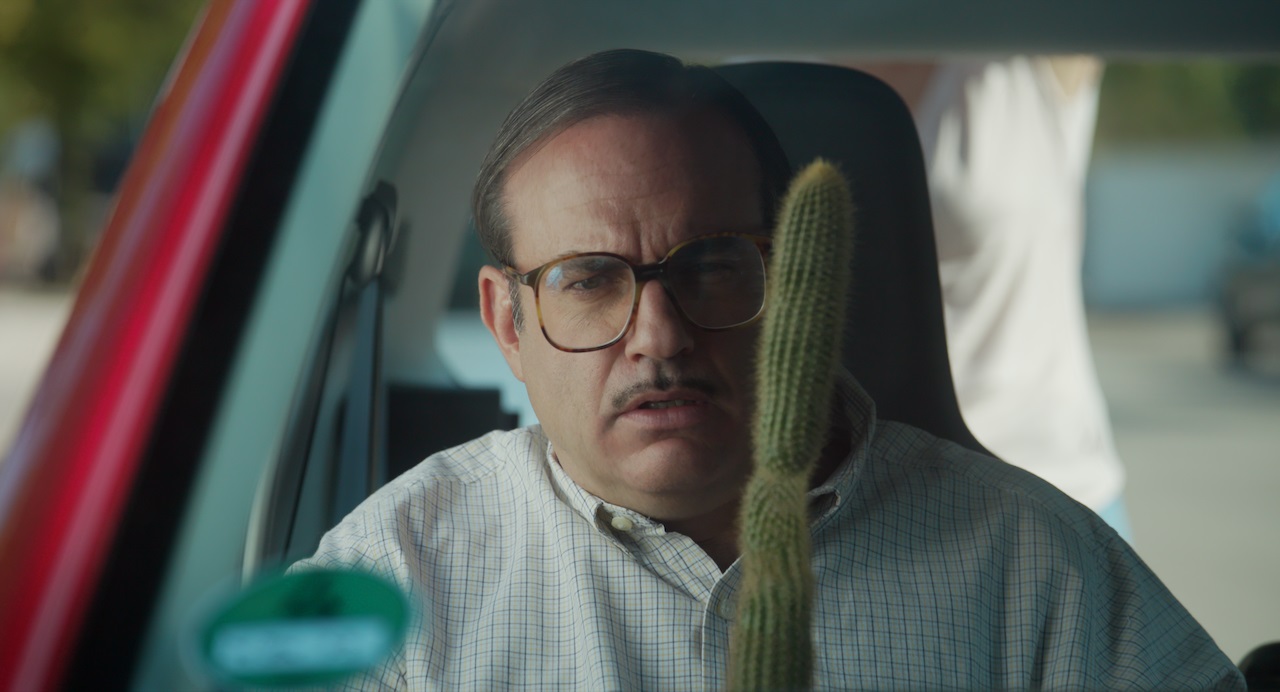
Helmut alone © MILIZ
die Seriale: You have very different styles of music in your series. For example classical music, like the allknown piece “For Elise”. Was there a special effect you wanted to create with this kind of music?
Wouter Wirth: Well, actually we worked one year at the music and there were many different tries and even more feedback loops, because the big challenge was, that we needed music that sets the tone of MILIZ!. And that means, that we could not use for example suspenseful music very often or something romantic, but it had to define the beats in a scene in a way. In fact the rhythm, that MILIZ feels like and the time, is significantly influenced by the music and it is the expression of a big joy of Moritz and myself to quote, play and work with different pop cultural backgrounds, which make the scenes feel different. We have the meet cute from Saida und Elvis in contrast to a Mozart aria, the scene gets a tone which it could not get through any other music of the world. It gets very childish and naive. It is as you know from the „Magic Flute“ and the aria is about the impossibility to find love.
Moritz Adlon: And at the same time, three episodes later, in the fifth episode at the end on the parking deck, it can be a hundred percent action film and making fun and feeling like Terminator and of course it is all film music which we are socialized with. MILIZ! should aside from the political aspect also be maximum entertaining relating to the target group. It should be fun dealing with that topic and to be confronted with yourself and about what you laugh at the same time.
die Seriale: Thank you for the Interview!
MILIZ! (2020)
Country: Germany
Genre: Comedy
Runtime: 6 x 10 min
Director: Moritz Adlon, Wouter Wirth
Writer: Moritz Adlon, Wouter Wirth
Producers: Salome Tomasek & Hochschule für Fernsehen und Film München
Cast: Miguel Abrantes Ostrowski, Luis Lüps, Zora Thiessen, Falke Klare-Thiessen, Loujain Obaed, Jörg Bundschuh, Mathilde Bundschuhe, Stephan Lehnen, Inge Rassaerts, Beate Kurecki, Murali Perumal
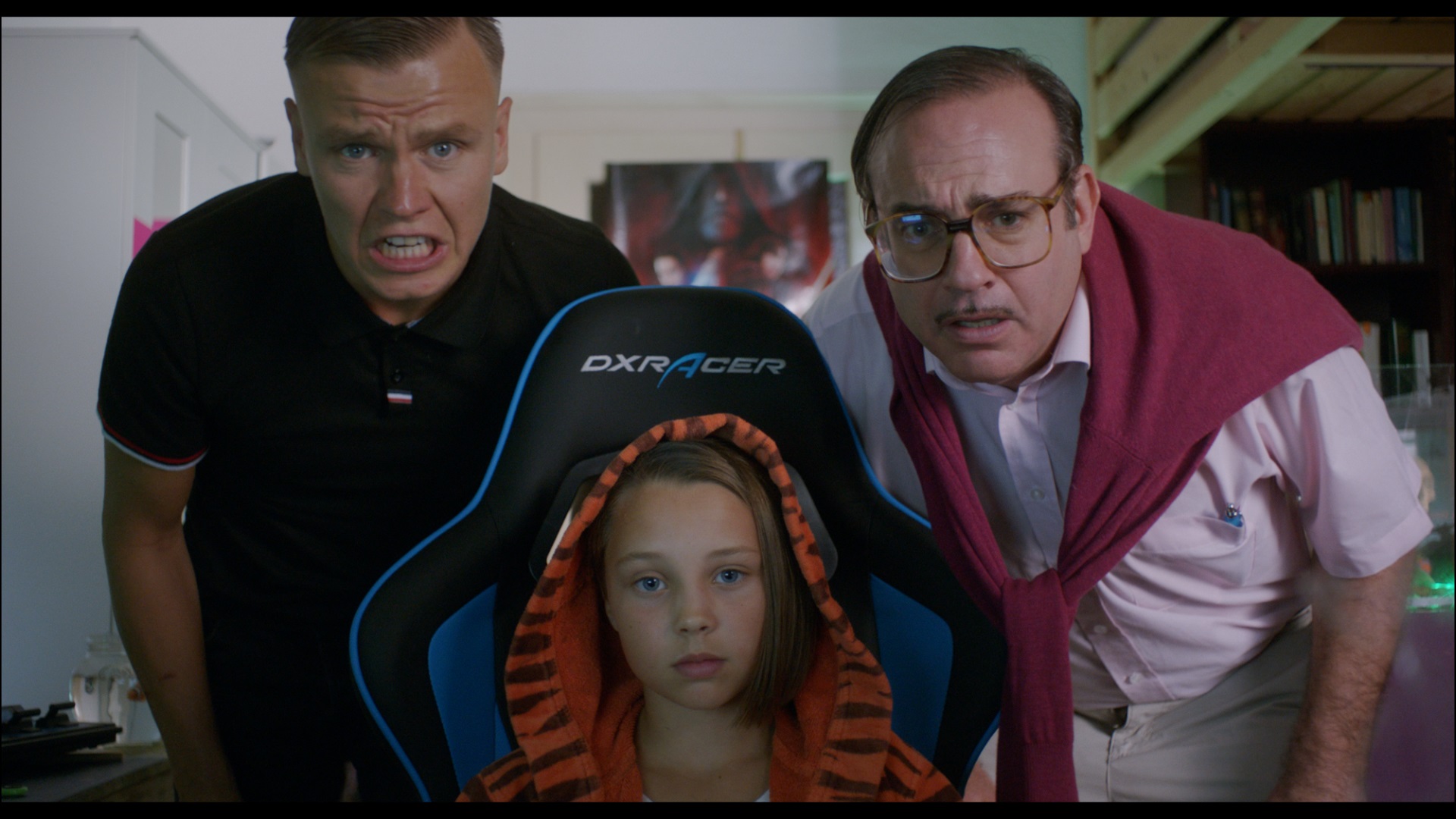
Still of MILIZ © MILIZ
